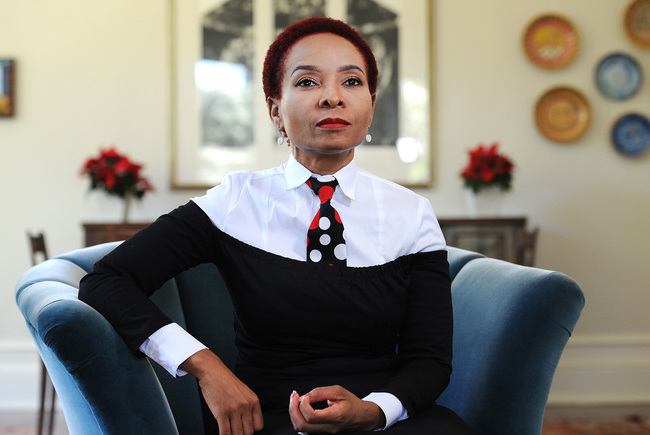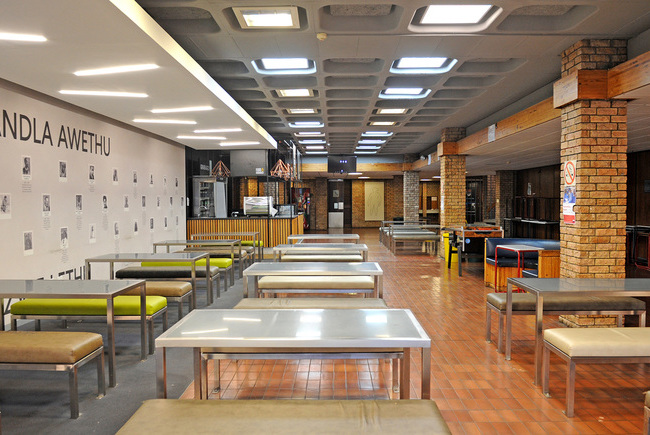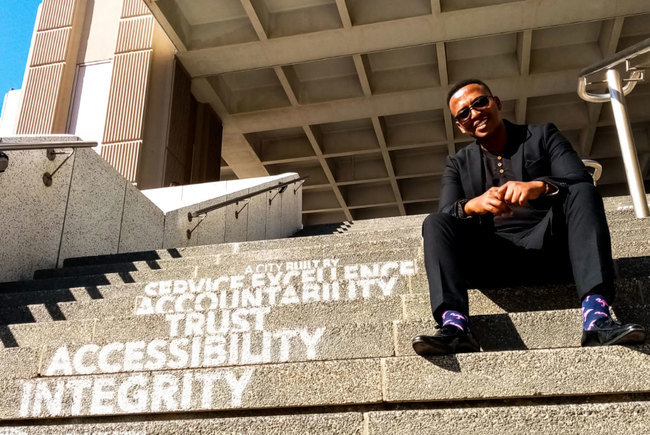Africa’s digital divide
30 June 2020 | Story Niémah Davids. Photo Adobe Stock. Voice Sarin Drew. Read time 5 min.
Research by University of Cape Town (UCT) PhD student Matthias Krönke reveals that the 34 African countries surveyed for his paper, titled “Africa’s digital divide and the promise of e-learning”, are on strikingly different levels when it comes to this fast-emerging global phenomenon.
Krönke is a student at UCT’s Department of Political Studies and a data support officer for the Afrobarometer based at UCT’s Institute for Democracy, Citizenship and Public Policy in Africa. The Afrobarometer is a pan-African, non-partisan research network that conducts public attitude surveys on democracy, governance, economic conditions and other related issues.
Speaking to UCT News, Krönke said his research into the digital divide in Africa and the continent’s readiness to embrace online remote teaching and learning is imperative. This after universities around the world shut down amid the COVID-19 pandemic and students were forced to adapt to the new digital learning methodology.
“Countries surveyed have very different levels of remote online learning readiness.”
“From my research it is clear the countries surveyed have very different levels of remote online learning readiness. Hopefully these findings will help us to think differently about who we could turn to when incorporating new technologies,” he said.
“While it’s helpful to learn and adapt to new technologies from the Global North, there is a lot that African countries can learn from each other in this regard.”
Key findings
Krönke’s research revealed that only 20% of adults on the continent have access to both a smartphone and a computer, while 43% indicated that they only have access to a basic cellphone.
He said only 20% of adults are “well prepared” to participate or assist members of their family with the online learning transition, and a whopping 55% reported to be “ill prepared” for remote learning. Further, 25% of respondents noted that they are able to participate in digital learning if the necessary tools [smartphones or laptop computers] are provided.
Interestingly, Krönke said that Africans’ readiness to engage in remote learning is primarily shaped by their level of formal education and access to electricity, rather than by their overall wealth and geographic location.
“This was surprising to me. I expected that both [aspects] would have a much bigger effect on citizens’ readiness to participate in, or assist with, remote learning,” he noted.
Krönke said these findings highlight the importance of basic infrastructure, such as electricity supply, as well as access to quality education, which are lacking in many countries on the continent.
The digital divide
A sizeable digital divide exists among countries on the continent because access to digital devices remain limited.
His research found Mauritius to be the only country where over half of the adult population (51%) own a smartphone and a computer. Tailing closely behind is Morocco at 40%, Cabo Verde at 39%, Gabon at 37% and South Africa at 36%.
But in countries like Madagascar, Malawi and Niger, only one in five citizens are “moderately” ready to participate in or assist with remote online learning.
“Poorer households run the risk of being severely disadvantaged in this new learning environment.”
He said for most Africans, buying a smartphone or a computer is considered a significant investment, which explains why access to tech devices are limited among households in poorer communities.
“Poorer households run the risk of being severely disadvantaged in this new learning environment where having easy access to such devices is essential,” he said.
“Given these differences, African countries should be encouraged to share their lessons; they have so much to learn from each other.”
Bridging the gap
To bridge the gap will take hard work.
In his paper, Krönke argued that Africans need access to smartphones and education on digital literacy to make e-learning work.
“A preliminary analysis suggests that in the short term, government provision of smartphones and/or computers could redraw the contours of the digital divide. Albeit effective, this could be a costly intervention.”
Krönke said African countries should focus on providing access to electricity and make quality education a priority in order to close the digital divide.
“It would be great if the COVID-19 pandemic and the forced move to e-learning would also signify the starting point for more inter-university collaboration of both staff and students to develop different models of blended learning.
“With more open-source tools, opportunities for digital African collaboration increase rapidly.”
 This work is licensed under a Creative Commons Attribution-NoDerivatives 4.0 International License.
This work is licensed under a Creative Commons Attribution-NoDerivatives 4.0 International License.
Please view the republishing articles page for more information.
UCT’s response to COVID-19 in 2021
COVID-19 is a global pandemic that caused President Cyril Ramaphosa to declare a national disaster in South Africa on 15 March 2020 and to implement a national lockdown from 26 March 2020.
UCT is taking the threat of infection in our university community extremely seriously, and this page will be updated regularly with the latest COVID-19 information. Please note that the information on this page is subject to change depending on current lockdown regulations.
Commemorating a year of COVID-19
At midnight on 26 March 2020, South African went into the first nationwide hard lockdown. A year later, we remember those who have died and those who have been affected by COVID-19, as well as the pandemic’s effects across society and campus. We are especially grateful for the front-line health workers who have done so much for so many.
Frequently asked questions
In an email to the UCT community, Vice-Chancellor Professor Mamokgethi Phakeng said:
“COVID-19, caused by the virus SARS-CoV-2, is a rapidly changing epidemic. [...] Information [...] will be updated as and when new information becomes available.”
We are continuing to monitor the situation and we will be updating the UCT community regularly – as and when there are further updates. If you are concerned or need more information, students can contact the Student Wellness Service on 021 650 5620 or 021 650 1271 (after hours), while staff can contact 021 650 5685.














